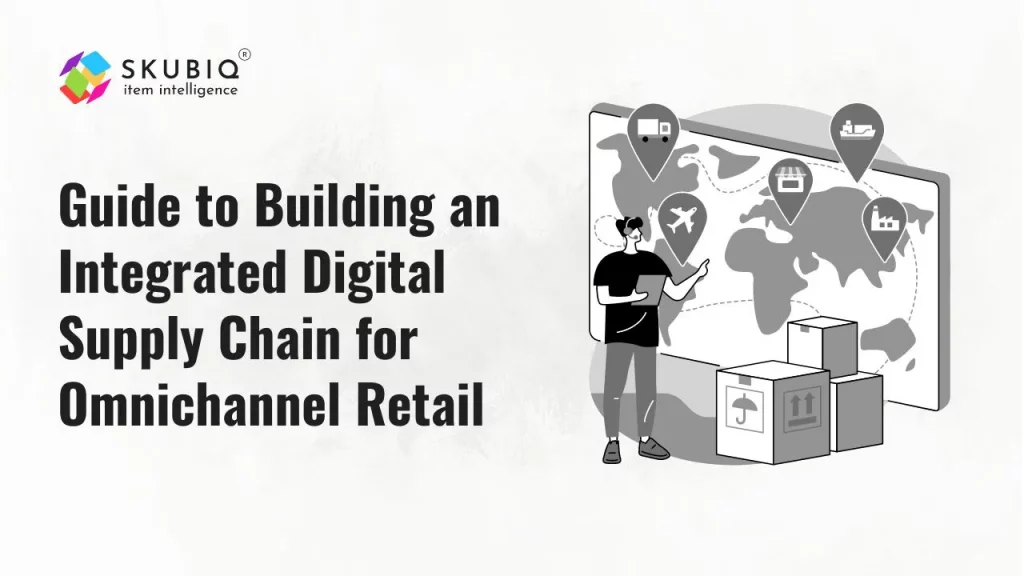In the ever-evolving landscape of retail, building an integrated digital supply chain is imperative for success in the omnichannel era. From managing inventory across multiple channels to optimizing distribution networks, businesses must adapt to meet the demands of modern consumers. Let’s embark on a journey to explore the intricacies of digital supply chain management and its significance in the world of omnichannel retail.
Understanding the Digital Supply Chain
The digital supply chain encompasses the flow of goods, information, and finances across various stages, from sourcing raw materials to delivering finished products to customers. In today’s interconnected world, digital technologies play a vital role in transforming traditional supply chain practices.
The Evolution of Supply Chain Management
Supply chain management has undergone significant evolution, transitioning from manual processes to automated systems driven by data and analytics. The integration of digital technologies has revolutionized how businesses manage inventory, streamline logistics, and respond to customer demands in real-time.
Embracing Digital Transformation
Embracing digital transformation is essential for businesses looking to remain competitive in the modern marketplace. By digitizing supply chain processes, companies can gain visibility into their operations, improve decision-making, and enhance collaboration with suppliers and partners.
The Role of Technology in Supply Chain Management
Technology serves as the backbone of modern supply chain management, enabling businesses to automate repetitive tasks, track inventory in real-time, and analyze data for insights. Innovations such as blockchain, Internet of Things (IoT), and artificial intelligence (AI) are reshaping the way supply chains operate.
Integrating Logistics into the Supply Chain
Logistics plays a critical role in the digital supply chain, encompassing activities such as transportation, warehousing, and distribution. By integrating logistics seamlessly into the supply chain, businesses can optimize routes, reduce delivery times, and minimize costs.
Optimizing Inventory Management
Effective inventory management is crucial for balancing supply and demand across multiple channels. By leveraging technology such as inventory tracking systems and demand forecasting tools, businesses can optimize stock levels, reduce carrying costs, and prevent stockouts or overstocking.
Implementing Distribution Strategies
Distribution management involves the efficient movement of goods from the point of production to the end consumer. By implementing strategic distribution strategies, businesses can minimize lead times, improve order accuracy, and enhance customer satisfaction.
Enhancing Customer Experience
In the era of omnichannel retail, customer experience is paramount. By leveraging digital supply chain capabilities, businesses can offer seamless shopping experiences, personalized recommendations, and convenient delivery options, fostering customer loyalty and retention.
Challenges and Solutions in Digital Supply Chain
Despite the benefits, digital supply chain management comes with its own set of challenges, including cybersecurity threats, data silos, and supply chain disruptions. By investing in robust cybersecurity measures, fostering data sharing among stakeholders, and implementing agile supply chain practices, businesses can mitigate these challenges effectively.
Future Trends in Supply Chain Management
The future of supply chain management is shaped by emerging trends such as sustainability, circular economy principles, and supply chain transparency. By embracing these trends and leveraging cutting-edge technologies, businesses can build resilient, agile supply chains capable of meeting the demands of tomorrow’s consumers.
Conclusion
In the dynamic world of omnichannel retail, building an integrated digital supply chain is essential for success. By embracing digital transformation, leveraging technology, and optimizing logistics and inventory management processes, businesses can gain a competitive edge, drive efficiency, and deliver exceptional customer experiences.
FAQs (Frequently Asked Questions)
1. What is a digital supply chain?
A digital supply chain refers to the integration of digital technologies into traditional supply chain processes, enabling businesses to automate tasks, improve visibility, and enhance collaboration across the entire supply chain ecosystem.
2. How does digital supply chain management differ from traditional supply chain management?
Digital supply chain management leverages technology such as IoT, AI, and blockchain to automate processes, gain real-time visibility, and optimize decision-making, whereas traditional supply chain management relies on manual processes and paper-based documentation.
3. What role does logistics play in the digital supply chain?
Logistics plays a crucial role in the digital supply chain by facilitating the movement of goods from suppliers to customers. It involves activities such as transportation, warehousing, inventory management, and order fulfillment.
4. What are some common challenges in digital supply chain management?
Common challenges in digital supply chain management include cybersecurity threats, data silos, supply chain disruptions, and the complexity of integrating disparate systems. However, these challenges can be overcome through proactive measures and strategic investments in technology and infrastructure.
5. How can businesses future-proof their digital supply chain?
To future-proof their digital supply chain, businesses should embrace emerging technologies, foster collaboration among supply chain partners, and adopt agile, flexible processes that can adapt to changing market dynamics and consumer preferences.



